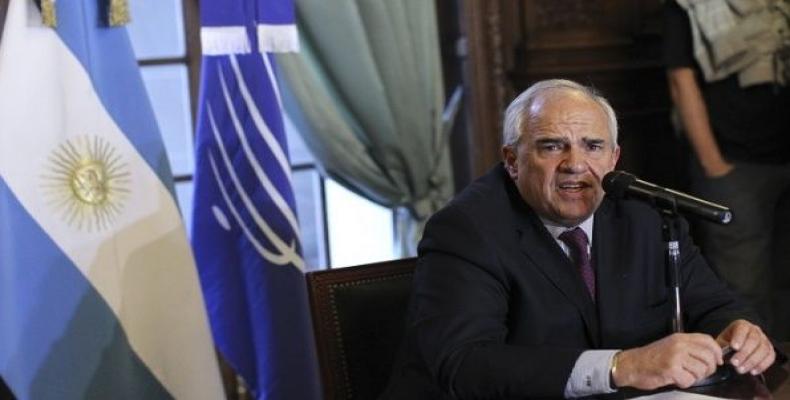Bogota, May 10 (RHC)-- Ernesto Samper, the former secretary general of the Union of South American Nations (UNASUR), has expressed his deep “anguish” over recent threats to the continuation of the group and has decried the current United States administration's growing influence within the region and the belligerence it has shown.
During a recent interview with the Argentinean newspaper Pagina 12, the former Colombian president said: “We didn’t discuss the situation of Latino migrants in the United States, the construction of the wall with Mexico, the reversal of the policy of opening up to Cuba... Never has the United States agenda in Latin America been so aggressive as it is now. And never have we been so silent and so servile with the United States.”
Samper said these issues and not the political debate centered on banning Venezuela from participating in the summit at the behest of the so-called Lima Group should have been the focus of the meeting. Samper also condemned the move made by six of UNASUR's 12 member states to "temporarily” withdrawal from the organization.
Samper explained the organization “was born as a response to the crisis of the Interamerican system and the failure of last century’s neo-liberal model… which cost us 120 million new poor in the region.”
UNASUR's fate, Samper said, depends on whether the position taken by the six countries is ideological or strategic to force the organization to name a new secretary general. Since Samper ended his period in January 2017, members states have been unable to elect a new secretary-general.
“It is clear the United States would prefer to have a sole integration mechanism like the Organization of American States (OAS)... It was (UNASUR’s) Defense Council which stopped the extension of 20 United States military bases in Colombia that threatened the region,” Samper responded when asked about U.S. interventionism.
Former UNASUR chief concerned about 'belligerent' U.S. threat to regional integration

Related Articles
Commentaries
MAKE A COMMENT
All fields requiredMore Views
- Israeli military’s new killing tactic: Drones that play sounds of crying children, luring Palestinians to their deaths
- Extradition of Julian Assange edges closer as U.S. claims it will respect his human rights
- Adidas president highlights reunion with Cuba
- Honduras to withdraw diplomats from Ecuador in support of Mexico
- Cuba and the United States hold migration talks

